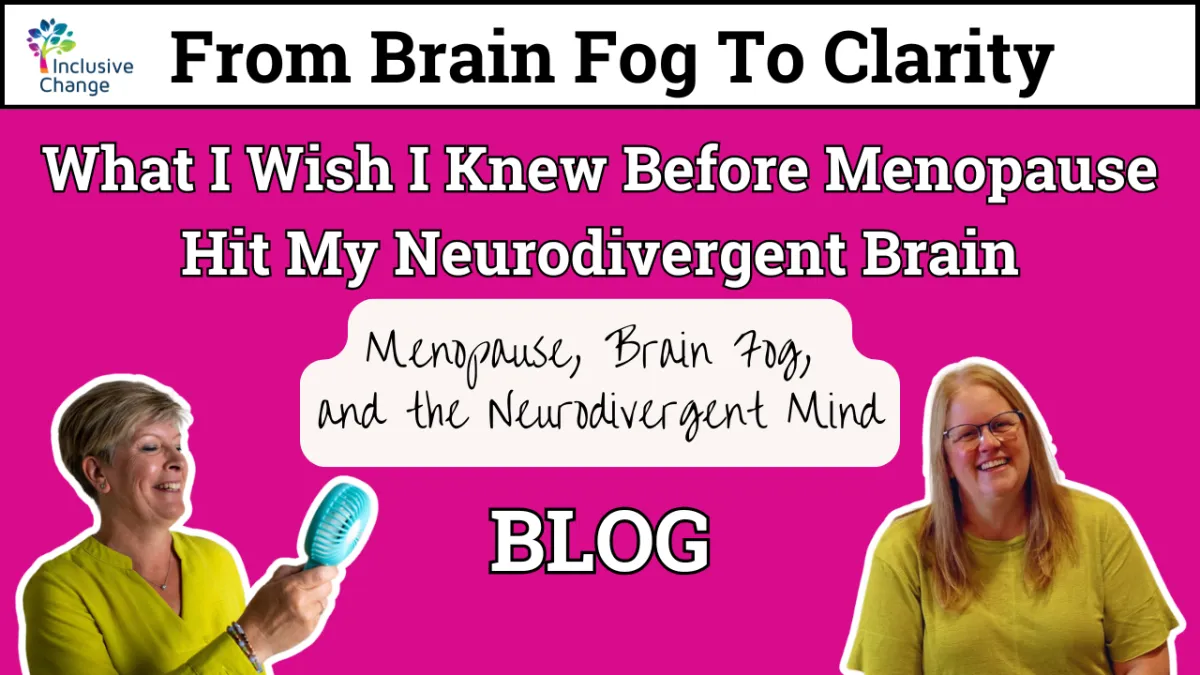
What I Wish I Knew Before Menopause Hit My Neurodivergent Brain
If you’re deep in the fog, feeling scattered, sensitive, and wondering when you became 'this version' of yourself, this is for you.
Because there’s a long list of things we wish someone had told us before perimenopause and menopause started turning our internal world upside down, especially for those of us with ADHD or autism.
So if you’re only just connecting the dots, here’s a list you deserve to see now - not years after the struggle.
1. Brain fog isn’t a fluke - it’s hormonal
And for neurodivergent brains that rely on structure and sharpness, it hits hard. Losing words, forgetting plans, or zoning out mid-meeting isn’t a moral failure. It’s biology.
2. Menopause can amplify sensory sensitivity
Lights too bright. Sounds too sharp. Clothes suddenly unbearable. This isn’t you becoming delicate, it’s your nervous system becoming overloaded.
3. Your ADHD and/or autism traits may feel stronger
Things you used to 'manage' might now feel unmanageable. This doesn’t mean you’re going backwards, it means your old coping systems need upgrading, with new awareness.
4. You don’t have to push through
We were taught to work harder, mask better, show up even when we’re crumbling. But menopause demands compassion, not hustle.
5. Masking will drain you faster now
You may find yourself losing patience, stimming more, feeling less tolerant in social situations. That’s not failure. It’s your mask slipping, and your real needs surfacing.
6. Emotional waves are real
Tearful in meetings? Overwhelmed by minor changes? Hormonal shifts impact mood regulation. ADHD and autistic women often feel this more intensely.
7. You can ask for adjustments - even in senior roles
You deserve quieter environments, clearer communication, schedule flexibility, and understanding. No title makes you exempt from needing support.
8. Self-trust is key
If something feels off, it probably is. You’re the expert on your body and brain, even if no one else sees what you’re holding.
9. Finding your people matters
The relief of hearing, 'me too' from another late-diagnosed woman is powerful. Coaching, peer spaces, and neurodivergent community can be life-changing.
10. There is a way through this
With the right information, space, and tools, this stage doesn’t have to be the end of your clarity or capacity. It can be the beginning of a new kind of connection with yourself.
If you’re nodding along or feeling tearful reading this, know this: we made the From Brain Fog to Clarity workshop just for you.
It’s the workshop we all wish we’d had.